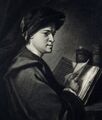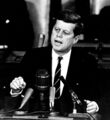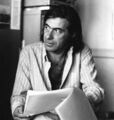Template:Selected anniversaries/May 29: Difference between revisions
Jump to navigation
Jump to search
No edit summary |
No edit summary |
||
| (24 intermediate revisions by the same user not shown) | |||
| Line 1: | Line 1: | ||
<gallery> | <gallery> | ||
|| | || *** DONE: Pics *** | ||
||1453: Fall of Constantinople: Ottoman armies under Sultan Mehmed II Fatih capture Constantinople after a 53-day siege, ending the Byzantine Empire. | |||
|| | ||1639: Niccolò Arrighetti dies ... intellectual, pupil and associate of Galileo Galilei. Pic: ceremonial 'bran shovel' . | ||
||1675 | ||1660: Frans van Schooten dies ... mathematician and academic. No DOB. Pic. | ||
||1675: Humphry Ditton born ... mathematician and philosopher. No pics online. | |||
File:John Mudge.jpg|link=John Mudge (nonfiction)|1777: Physician and engineer [[John Mudge (nonfiction)|John Mudge]] elected a Fellow of the Royal Society, and in the same year was awarded the Copley medal for his 'Directions for making the best Composition for the Metals for reflecting Telescopes; together with a Description of the Process for Grinding, Polishing, and giving the great Speculum the true Parabolic Curve'. | File:John Mudge.jpg|link=John Mudge (nonfiction)|1777: Physician and engineer [[John Mudge (nonfiction)|John Mudge]] elected a Fellow of the Royal Society, and in the same year was awarded the Copley medal for his 'Directions for making the best Composition for the Metals for reflecting Telescopes; together with a Description of the Process for Grinding, Polishing, and giving the great Speculum the true Parabolic Curve'. | ||
||1780 | ||1780: Henri Braconnot born ... chemist and pharmacist. Pic. | ||
||1781: John Walker born ... invented the friction match. Pic search. | |||
||1794: Johann Heinrich von Mädler born ... astronomer and selenographer. Pic. | |||
||John | ||1823: John H. Balsley born ... carpenter and inventor. Pic search. | ||
|| | ||1829: Humphry Davy dies ... chemist and academic. Pic. | ||
|| | ||1830: Louise Michel dies ... teacher and important figure in the Paris Commune. Following her penal transportation she embraced anarchism. When returning to France she emerged as important French anarchist and went on speaking tours across Europe. The journalist Brian Doherty has called her the "French grande dame of anarchy" and "Red Virgin". Pic. | ||
|| | ||1850: Guido Goldschmiedt born ... chemist. His most remarkable results were establishing the structure of several natural compounds including papaverine and ellagic acid. Pic. | ||
|| | ||1859: Erich Wasmann born ... entomologist, specializing in ants and termites, and Jesuit priest. He described the phenomenon known as Wasmannian mimicry. Wasmann was a supporter of evolution, although he did not accept the productivity of natural selection, the evolution of humans from other animals, or universal common descent of all life. Pic. | ||
|| | ||1882: Harry Bateman born ... mathematician. Pic. | ||
|| | ||1893: Charles Loewner born ... mathematician. One of his central mathematical contributions is the proof of the Bieberbach conjecture in the first highly nontrivial case of the third coefficient. The technique he introduced, the Loewner differential equation, has had far-reaching implications in geometric function theory. Pic. | ||
||George Szekeres | ||1906: Gerrit Bol born ... mathematician, who specialized in geometry. He is known for introducing Bol loops in 1937, and Bol’s conjecture on sextactic points. Pic. | ||
||1911: George Szekeres born ... mathematician. He will discover the Szekeres snark, a snark with 50 vertices and 75 edges. Pic. | |||
File:John F. Kennedy moon mission speech.jpg|link=John F. Kennedy (nonfiction)|1917: Politician [[John F. Kennedy (nonfiction)|John F. Kennedy]], 35th President of the United States, born. | File:John F. Kennedy moon mission speech.jpg|link=John F. Kennedy (nonfiction)|1917: Politician [[John F. Kennedy (nonfiction)|John F. Kennedy]], 35th President of the United States, born. | ||
||1918: David Rees born ... professor of pure mathematics at the University of Exeter, having been head of the Mathematics / Mathematical Sciences Department at Exeter for many years. During the Second World War, Rees was active on Enigma research in Hut 6 at Bletchley Park. Pic: http://emps.exeter.ac.uk/mathematics/research/david-rees-fellowship/ | |||
|| | File:Arthur Stanley Eddington.jpg|link=Albert Einstein (nonfiction)|1919: [[Arthur Eddington (nonfiction)|Arthur Eddington]] and Andrew Claude de la Cherois Crommelin view a solar eclipse as a test of [[Albert Einstein (nonfiction)|Einstein]]'s theory of general relativity. | ||
|| | ||1920: John Charles Harsanyi born ... economist. He is best known for his contributions to the study of game theory and its application to economics, specifically for his developing the highly innovative analysis of games of incomplete information, so-called Bayesian games. He also made important contributions to the use of game theory and economic reasoning in political and moral philosophy. Pic. | ||
||John "Jack" Roland Redman | ||1921: Norman Hetherington born ... cartoonist and puppeteer. Pic. | ||
||1929: Mathematician Günter Lumer born. He will work in functional analysis. He is the namesake of the Lumer–Phillips theorem on semigroups of operators on Banach spaces, and was the first to study semi-inner-products. Pic. | |||
File:Christopher_Riche_Evans.jpg|link=Christopher Evans (nonfiction)|1931: Psychologist, computer scientist, and author [[Christopher Evans (nonfiction)|Christopher Evans]] born. | |||
||1937: Mathematician Lucjan Böttcher dies ... He will contribute to functional equations, theory of iterations, and the dynamics of holomorphic functions. Pic search: https://www.google.com/search?q=Lucjan+Böttcher | |||
||1970: John "Jack" Roland Redman ... admiral in the United States Navy. A naval communications officer, he played key roles in signals intelligence during World War II in Washington, D.C., and on the staff of Admiral Chester W. Nimitz. Pic search: https://www.google.com/search?q=John+"Jack"+Roland+Redman&oq=John+"Jack"+Roland+Redman | |||
|link=International Space Station (nonfiction)|1999: Space Shuttle ''Discovery'' completes the first docking with the [[International Space Station (nonfiction)|International Space Station]]. | |link=International Space Station (nonfiction)|1999: Space Shuttle ''Discovery'' completes the first docking with the [[International Space Station (nonfiction)|International Space Station]]. | ||
||Kazimierz Urbanik | ||2005: Mathematician Kazimierz Urbanik dies. He founded the journal Probability and Mathematical Statistics and served as rector of the University of Wrocław. Pic. | ||
||2012: Engineer and computer scientist J. Halcombe "Hal" Laning Jr. dies. Laning invented an algebraic compiler called George (also known as the Laning and Zierler system after the authors of the published paper) that ran on the MIT Whirlwind, the first real-time computer. Pic search. | |||
||2014: Peter Glaser dies ... scientist and engineer. Pic search yes: https://www.google.com/search?q=peter+glaser | |||
||2014: Walter Jakob Gehring dies ... biologist and academic. Gehring researched ''Drosophila'' genetics and development, particularly the analysis of cell determination in the embryo and transdetermination of imaginal discs. Pic. | |||
|| | ||2015: George Roger Sell dies ... mathematician, specializing in differential equations, dynamical systems, and applications to fluid dynamics, climate modeling, control systems. U of MN. Pic search. | ||
File:Self portrait (29 May 2023) 20230529 200654.jpg|link=Self portrait (29 May 2023)|2023: '''[[Self portrait (29 May 2023)|Self portrait]]'''. | |||
</gallery> | </gallery> | ||
{{Template:Categories: May 29}} | |||
Latest revision as of 19:42, 29 May 2024
1777: Physician and engineer John Mudge elected a Fellow of the Royal Society, and in the same year was awarded the Copley medal for his 'Directions for making the best Composition for the Metals for reflecting Telescopes; together with a Description of the Process for Grinding, Polishing, and giving the great Speculum the true Parabolic Curve'.
1917: Politician John F. Kennedy, 35th President of the United States, born.
1919: Arthur Eddington and Andrew Claude de la Cherois Crommelin view a solar eclipse as a test of Einstein's theory of general relativity.
1931: Psychologist, computer scientist, and author Christopher Evans born.
2023: Self portrait.




